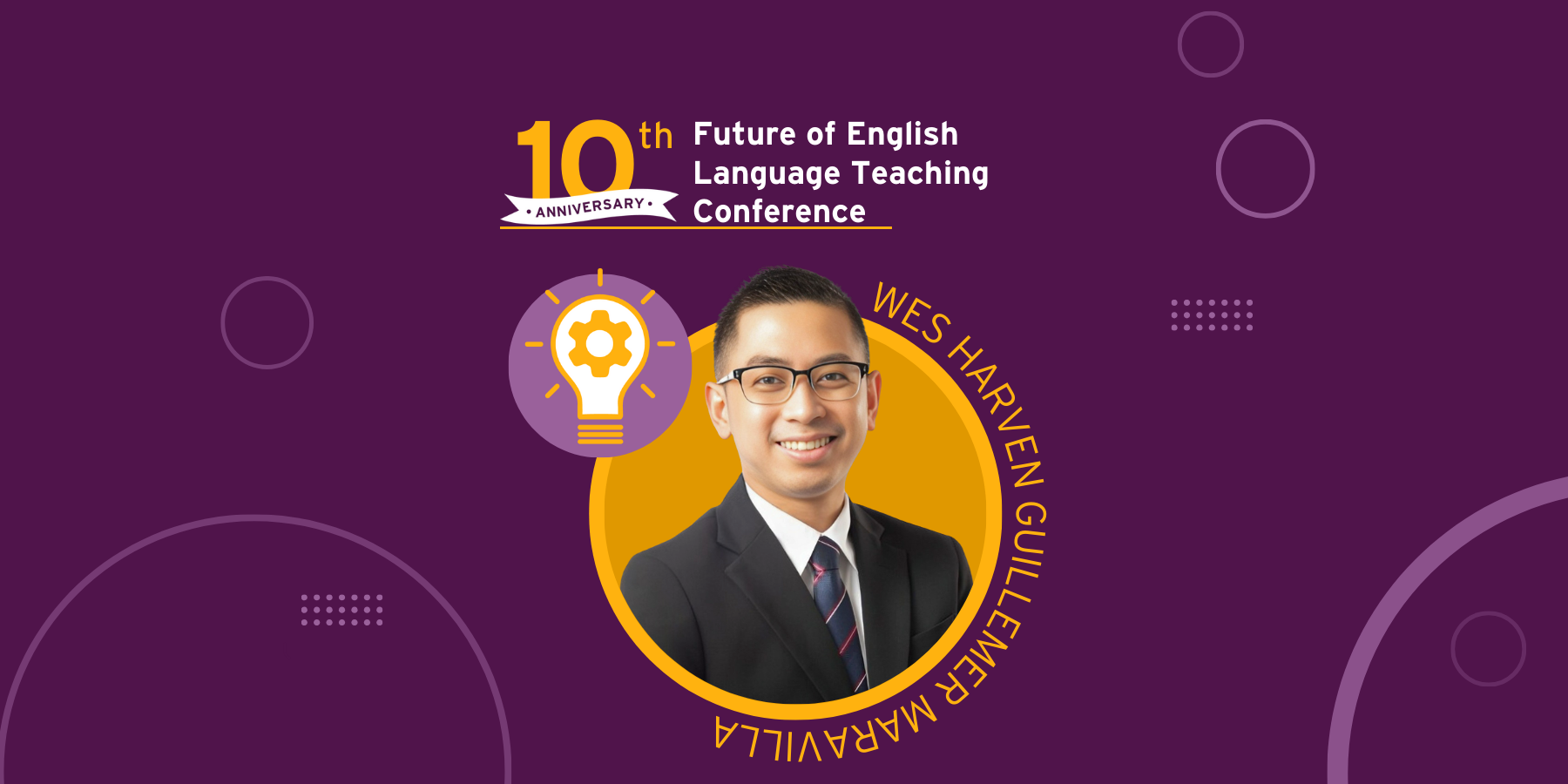Debate for a connected world: preparing Thai EFL students for the challenges and opportunities of the IoT age

Debate for a connected world: preparing Thai EFL students for the challenges and opportunities of the IoT age
At this year’s Future of English Language Teaching (FoELT) conference, Wes Harven Guillemer Maravilla shared research exploring how classroom debate can develop Thai learners’ communication and critical thinking skills in preparation for the demands of the digital age.
Wes Harven Guillemer Maravilla is an EFL/ESL expert at Suan Sunandha Rajabhat University in Thailand. He holds a Master of Arts in Education, specialising in English Language Teaching, and has focused on communicative and project-based approaches since 2019. His research interests include AI in education, sustainable development, and maritime education in Asia. He is dedicated to enhancing language learning through innovative and digital methodologies.
Debate as a tool for 21st-century learning
Wes’s presentation addressed a central question: how can teachers prepare learners to use English meaningfully and critically in an interconnected, technology-driven world?
His study focused on 43 Grade 10 students in Bangkok who participated in structured debates on topics relevant to digital life, including social media, plastic use, video games, and technology. The debates encouraged learners to research independently, exchange ideas, and respond to diverse perspectives in English.
Through debate, learners developed not only their language proficiency but also their ability to think critically and engage constructively with complex global issues.
Measuring language growth and critical engagement
The study examined students’ speaking performance through observation, assessment, and post-debate reflection. The results showed measurable progress in key areas of English proficiency:
- Pronunciation and articulation became clearer and more confident
- Grammar and vocabulary improved through repeated use of academic and persuasive language
- Fluency and comprehension increased as learners responded spontaneously during debates
Alongside these linguistic gains, students also demonstrated greater critical awareness. They learned to research and evaluate information from multiple sources, identify bias, and construct logical, evidence-based arguments.
Building transferable skills
Wes highlighted that debate cultivates skills that extend far beyond the language classroom. Learners became more confident in public speaking, more respectful of differing viewpoints, and more capable of independent thought.
By encouraging evidence-based reasoning and reflection, debate fosters the kind of intellectual agility that is essential for navigating the challenges of the Internet of Things (IoT) age. Learners who can analyse information critically and communicate persuasively are better equipped to participate responsibly in a globally connected world.
Creating a culture of constructive dialogue
The study also emphasised the importance of collaboration and civility. While competition is part of debate, the process taught students to value listening, respect, and empathy. Post-debate discussions provided opportunities for reflection, helping learners to identify strengths, acknowledge weaknesses, and consider how they could improve in future interactions.
This reflective element encouraged learners to see communication not as a contest, but to connect and share understanding. These are essential skills for effective participation in today’s digital and multicultural environments.
Implications for teaching practice
Wes encouraged teachers to incorporate debate and discussion-based activities into their lessons as part of a broader communicative and critical pedagogy. Even short debates, he noted, can motivate learners to engage more deeply with topics, practise spontaneous speaking, and use language authentically.
He also recommended integrating debates around real-world, technology-related themes, which not only develop language skills but also promote digital literacy and ethical awareness.
Key takeaways
|
Theme |
Key idea |
|
Debate as pedagogy |
Debate promotes both language development and critical thinking. |
|
Language gains |
Learners showed improvement in pronunciation, grammar, vocabulary, fluency, and comprehension. |
|
Critical engagement |
Debates helped students evaluate information and form evidence-based arguments. |
|
Transferable skills |
Debate builds confidence, collaboration, and intellectual flexibility for 21st-century communication. |
|
Reflective practice |
Post-debate discussions encourage empathy and constructive dialogue. |
Final thought
Wes’s presentation demonstrated how debate can transform language learning into a dynamic and reflective process. By combining language practice with critical inquiry, teachers can prepare learners to communicate effectively, think independently, and engage meaningfully with the global challenges of the IoT era.
